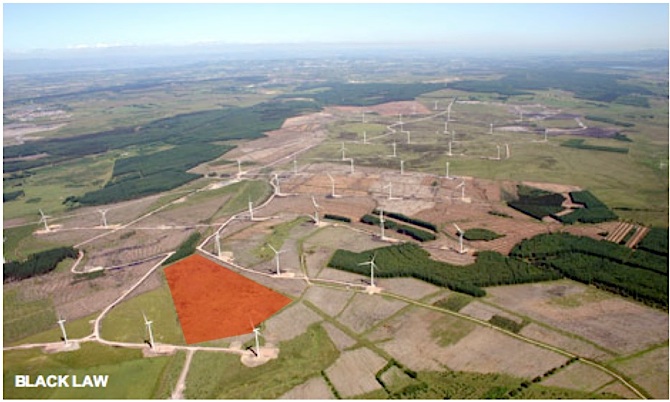Restoring the Commons
Today marks an important moment in the struggle to reclaim rights for the people over common land.
In May 2005, I discovered an extant commonty in the Parish of Carluke (pictured red above). Commonties are ancient areas of common land, often very extensive, that provided residents of the parish with fuel, building materials, food, and a place to bleach linen, conduct meetings and undertake the distillation of exotic drink. Unlike in England where the commons were enclosed by individual Acts of Parliament, in Scotland an Act of 1695 created a simple judicial process that facilitated the division and privatisation of millions of acres of common land.
The Division of Communities Act 1695 remains on the statute book (when I invited the Scottish Government to consider repealing it, I was told that it remained of value for farmers and landowners – so much for land reform).
Over the next seven years, I and others undertook extensive research on the history of the common and concluded that there was indeed no owner and that it was an undivided common. Unfortunately, land reform has yet to create a statutory process for reclaiming such areas of land for the common good and thus we had to work out how to bring the land into community ownership.
We settled on the process of registering an a non domino title, one where the grantee was by their own admission not the owner of the land. This is a clever trick used by the landed class down the centuries. It felt curious to be using such a procedure but we proceeded anyway. It took some time for the Keeper of the Registers of Scotland to accept the deed. Various parties had to be consulted including the Queen’s and Lords Treasurer’s and Remembrancer. Eventually on 23 May 2012, the Keeper registered the title in the Land Register as LAN212232.
But that was not the end of the matter since the title remained open to challenge for ten years under Section 1 of the Prescription and Limitation (Scotland) Act 1973 after which, should no challenge be forthcoming, the title would be beyond challenge.
Thus today marks the 10th anniversary of the registration and Carluke Development Trust are the full and indisputable owners of the former parish common.
My blog of 16 January 2014 contains further details and today I am pleased to be able to finally publish the report that I wrote for Carluke Development Trust. Until now it has been deemed inadvisable to draw attention to some of the historical research for fear of alerting a possible claimant. Today that fear disappears and provides, I think, cause for some modest celebration.

Thank you.
My understanding is that in the UK one cannot purchase land. One can only purchase a promise from the government of ‘peaceful enjoyment’ of a particular site – a title in land.
One can also obtain from the local government a permission allowing a particular use of the site in question – agricultural, commercial, residential etc.
These two (the government promise and the local government permission) give any site its market value. Without them a site has no market value to any individual.
The question I have is this:
If the market value of a site is given and maintained by these two public services then why do we pay the previous owner a capital sum for a site instead of paying local and central government an annual sum for maintain these and other public services?
If there is any question as to the amount of the annual payment surely it is best to let the market decide how much that should be?
great stuff, well done
Some cause for celebration I say!
Slowly slowly catchee monkey.
The theft of the commons was just the start of the thieving by the aristocracy.
Innes v the duke of gordon case of 1820 illustrates perfectly how the land was improved by innes at great expense, but Gordon then broke the long lease so he could capture the enhanced rental that innes had created.
Innes had borrowed heavily to fund the improvents, but obviously had no way of repaying as the lease was broken by Gordon, so he was made bankrupt and died the same day his furniture was sold at auction leaving a large family .destitute.
These heinous acts are still permitted and even caused today by our supposedly reforming scotgovt.
Brilliant outcome, Andy! Well done. I wonder how many other unclaimed commonties still exist? Unfortunately ours (Mulbuie) was divided in 1816…